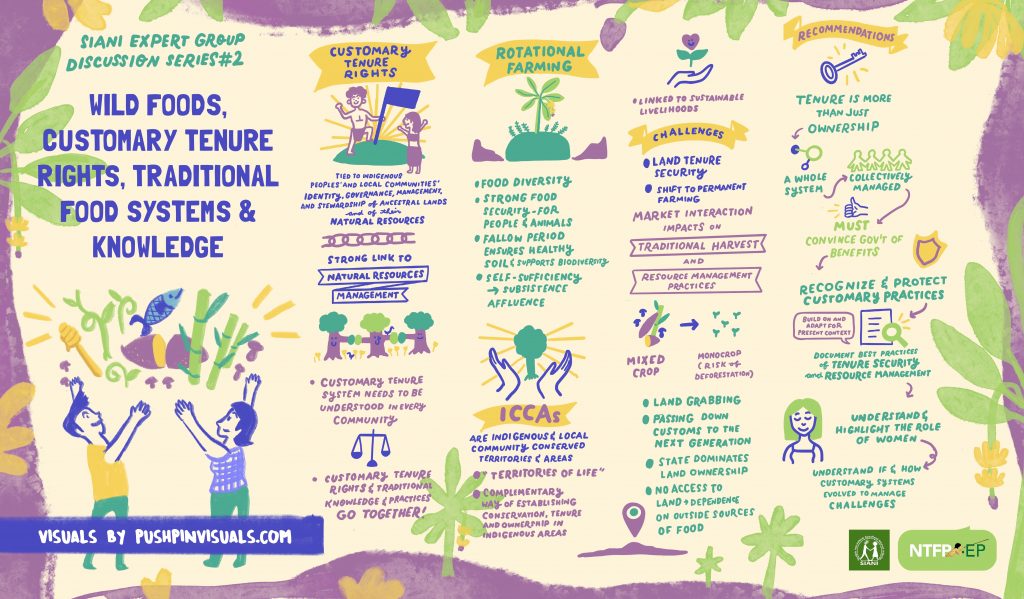The second discussion of the SIANI Expert Group on Wild Foods, Biodiversity and Livelihood tackling wild foods and its relation to customary tenure, traditional food systems and knowledge took place last July 28 via Zoom video conferencing.
Dr. Jeremy Ironside, the discussant and moderator, began by providing guide questions on the links between wild foods, tenure and food security: “How does customary tenure support diverse food systems? What policy changes are needed?”
In his remarks, Ironside spoke about the concept of sustainable, subsistence affluence and the importance of acknowledging the management systems of communities and pushing for recognition of their customary tenure. Such systems contribute to community resilience and food security and should be protected and supported by governments. He also emphasized that tenure is more than just ownership – it is also about management. He reminded us of the need to look at all kinds of ways people are managing areas and communal systems, learn from them and understand these systems better so we can adapt our ways of thinking.
“We need to look at these kinds of ways how people are managing these areas and understand, so we can adapt our ways of thinking about rights, how do we manage those rights, who has the power, all these kinds of issues we need to really discuss,” said Ironside.
Dr. Prasert Trakansuphakon, a Karen indigenous person from Thailand and Chairman of the Pgakenyaw Association for Sustainable Development (PASD) Thailand, shared their experience with rotational agriculture and how the Karen have been able to stand up and show evidence that their traditional food systems work and that it is a sustainable use of resources.
A teaser of the upcoming film about rotational farming in the highlands of Northern Thailand was also shown during the event.
Breakout groupings were assigned so participants could further explore customary tenure recognition, rotational farming and forest food management and harvesting. A plenary reporting was held, followed by commentaries from Expert Group members Miks Guia-Padilla, anthropologist and Chairperson of the Board of NTFP-EP Asia and Yun Mane, lawyer and an indigenous Bunong from Mondulkiri in the North East of Cambodia, shared insights about gender and tenure and the challenges to tenurial security and collective rights of indigenous peoples.
The discussion was participated in by Expert Group Members and Dialogue partners, including members and partners of NTFP-EP, SIANI, PASD Thailand, Institute for Social-Ecological Research (ISOE) in Frankfurt, the University of the Philippines Los Baños, Green Shoots Foundation, Green Community Development Association (GCDA Laos), Keystone Foundation India, Asia Indigenous Peoples Pact (AIPP), Promotion of Indigenous and Nature Together (POINT Myanmar), Chin Human Rights Organization, ICCA Consortium, Université Notre Dame de Tanganyika (UNDT), as well as independent researchers and advocates.
This discussion is the second of a four-part series on wild foods, biodiversity and livelihood which ran from June to September 2020. The discussion series are organized by the Expert Group with support from SIANI.
Click here to download the transcript of the presentation and discussion





